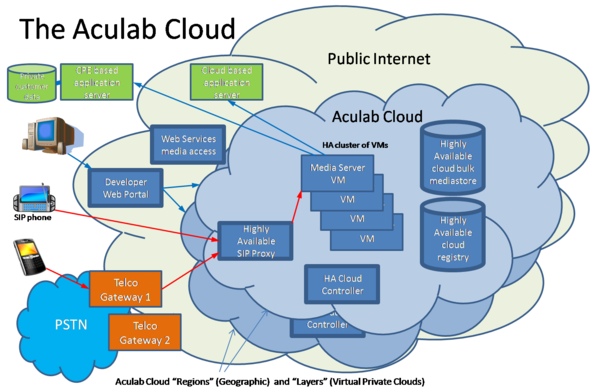This question, albeit it’s more of a statement seeking endorsement, was recently raised on LinkedIn and it generated a variety of responses relating to security, ease of use, and flexibility, to name but a few. I couldn’t resist the temptation to respond and counter some of those ‘issues’.
Security – any computer connected to the Internet is at risk from hackers, whether it is in the cloud or in a private data centre. Would it be true to say that an SME, with necessarily limited resources, is able to better secure its data than say, Amazon?
In addition, who says everything needs to be in the cloud? Adopting a cloud computing strategy isn’t an ‘all or nothing’ decision.

Oresund Bridge, image via Wikipedia
This weeks announcement[1] by Orange that it plans to roll out mobile HD Voice to several more countries throughout Europe, and from UK operator Three that they will roll out HD Voice capability to ‘most’ phones by the autumn is good news for the spread of HD Voice, but Orange are missing a trick.
Read down to the bottom of the Orange press release and you come to the part about hooking up its HD Voice capable mobile networks with its own broadband fixed network service that currently has approximately 800,000 subscribers. Orange is not planning to enable a customer who might have its wideband service on their home network to talk to someone (possibly a member of the same family) in HD Voice quality on a mobile phone until 2012 or 2013!
If HD Voice is to succeed in a big way, then you have to create a system that allows you (with a HD Voice capable device) to call another person (with an equally capable device) and not have to rely on that person being on the same network as you to guarantee the ability for the call to be setup with the best quality.
If disparate islands of HD Voice capability are developed in isolation, then the technology will never achieve its potential to revolutionise the voice communications landscape. What is needed is a concerted effort, from Orange and others, to create the bridges between these islands. Continue Reading...
[By the way; that’s a gateway as distinct from a router, Proxy server, or some form of gatekeeper or firewall function at an entry/exit point to the network.]
Sure, gateways aren’t wicked or malevolent – like vampires. Come to think of it, though, if it wasn’t for vampires, neither Peter Cushing nor Christopher Lee, not to mention Buffy (who polished off many a vampire), would’ve had much of a career. You’d probably think they’d be inclined to say, “Evil is good!”
So gateways are a necessary evil, which means they’re a good thing. Continue Reading...
A question was recently posted on linked in asking “What impact will the rise of cloud computing have on the service provider market over the next two years”?
It is an interesting question and not necessarily one you may be concerned with…but there may well be some effects that we all feel down track.
Cloud computing can be divided into many sub-groups: infrastructure, platform and software -as-a-service. And into many industry types – cloud telephony being one such example.
Continue Reading...VoIP had humble beginnings where it was seen as a way to get free calls, but with no expectation that the quality would be good or could be controlled. However, it has now come of age and can compete head-to-head with the PSTN and even surpass it in quality terms (with HD voice technology). The barriers to adoption have been coming down for VoIP, and Aculab systems are in place across a whole range of industry sectors supporting both TDM and IP-based traffic.
An example of just how IP-based applications can be rolled out to integrate with an existing TDM infrastructure can be found in a new Aculab case study from a UK city council. Continue Reading...
If the Rolling Stones had time back or rather, were just now embarking on their career, they’d be writing “Hey, you, get on to my cloud.” Most everyone is now saying to us or telling us, that is just what we should be doing – getting in[on]to ‘cloud computing’. Many analysts and researchers, such as Gartner and the IT Governance Institute, are happy to tell us that’s exactly what we will be doing. The ‘cloud’ is inevitable. Its advance is inexorable. Continue Reading...
 A snippet from Alan Pound's keynote given today at the IT Expo show in Miami showing the architecture of our new concept, Aculab Cloud. The video recording of the keynote presentation will be uploaded shortly.
A snippet from Alan Pound's keynote given today at the IT Expo show in Miami showing the architecture of our new concept, Aculab Cloud. The video recording of the keynote presentation will be uploaded shortly.
 It is set to be an exciting event for us, as we are previewing our new cloud-based platform, Aculab Cloud. This is the brainchild of our CEO, Alan Pound, and he is speaking on two occasions on this topic. Make sure not to miss those sessions, or a chance to gain first hand knowledge of the Aculab Cloud offering at our booth.
It is set to be an exciting event for us, as we are previewing our new cloud-based platform, Aculab Cloud. This is the brainchild of our CEO, Alan Pound, and he is speaking on two occasions on this topic. Make sure not to miss those sessions, or a chance to gain first hand knowledge of the Aculab Cloud offering at our booth. My colleague, Ian Colville, is taking the key product manager role this time around.
Continue Reading...
My colleague, Ian Colville, is taking the key product manager role this time around.
Continue Reading...

Once again, and for the 11th year running, Aculab is the Diamond sponsor of ITEXPO. The show continues to deliver great new contacts, networking opportunities and a perfect platform to announce new products to the communications industry. At the last event, we launched AMS Server – and won the Best of Show award for ‘Best Development Tool’. This year, we have more new announcements to make and interesting sessions to attend…
Aculab Cloud
Aculab will be previewing Aculab Cloud, our true cloud-based telephony platform, which builds on Aculab’s heritage in the telephony market and presents another deployment option for our award winning media processing resources.
Keynote presentation
‘Voice in the Clouds’
Alan Pound, Founder and CEO
Thursday 3 February at 10am in room B217 / 218
In this keynote, Alan will discuss the issues involved in hosting voice services and media processing in a cloud environment. Continue Reading...
Cloud-based communications will continue to gain in importance
Cloud computing will continue to shake up the established way of doing things, both for operators and equipment vendors such as ourselves, throughout 2011.
Cloud communications – the use of someone else’s server hardware to host your platform – sounds ideal as it eliminates CAPEX and reduces OPEX, but brings with it new challenges for time sensitive voice communications. Continue Reading...

If there was always one, single, universal answer, we’d not have Pepsi, Coca-Cola and IRN-BRU; there would not be around 20 diverse, major religions or belief systems in the world; Android, iOS 4, Symbian OS and Windows Phone 7 would all be superseded by ‘Universal SmartPhone OS 2’, and we’d all dress the same – like the characters in Logan’s Run.
Thankfully, the world is full of heterogeneity and that applies also to the α-diversity in the communications marketplace. Unified communications (UC) does not mean uniform communications and there is a ‘business case for diversity’ beyond that which talks of the composition of the workforce. It’s called competition.
The hype regarding competition in today’s communications marketplace is all about the ‘cloud’ and if we are to believe that, businesses should be falling over themselves to implement UC or their contact centres or Web-telephony, in public or private cloud networks as if that was the solitary answer. The reality is somewhat different and enough to make any self-respecting evangelist utter a simple unitary philippic in exasperation. Continue Reading...

“We’re doomed!” said Pte. Fraser in the cult BBC comedy, Dad's Army.
Well, that might be true if you’re concerned about global warming, the exhaustion of finite, carbon resources, the disappearance of tinority* languages like Busuu, the fact that the sun will burn out in around five billion years, or the B’ak’tun Cycle of the Mayans. For the rest of us, life goes on…
Ever since the last notional disaster of Y2K, which might just be a coincidence, we’ve been told that the days of the highly exclusive club of conventional telecommunications operators are numbered. The dismantling of the oligopoly and the resultant consumer freedom from practices that were based on over subscription and bundling were to herald a new dawn and sound the death knell for network providers.
However, the ‘unbundling’ of telecommunications services, despite its impact on the traditional, incumbent operators, hasn’t resulted in too many death throes. Continue Reading...

Cloud computing is a hot topic currently – but it is a complex subject area with different meanings to different people. In its simplest form, it is a term used for cloud storage/backup services. Others use the term to describe their software-as-a-service (SaaS) offerings – where software applications that would have been run on your own servers are now hosted by a service provider. Finally, and perhaps the most demanding, is CaaS – communications-as-a-service – where a real-time enterprise communications platform is hosted in the cloud. Continue Reading...









